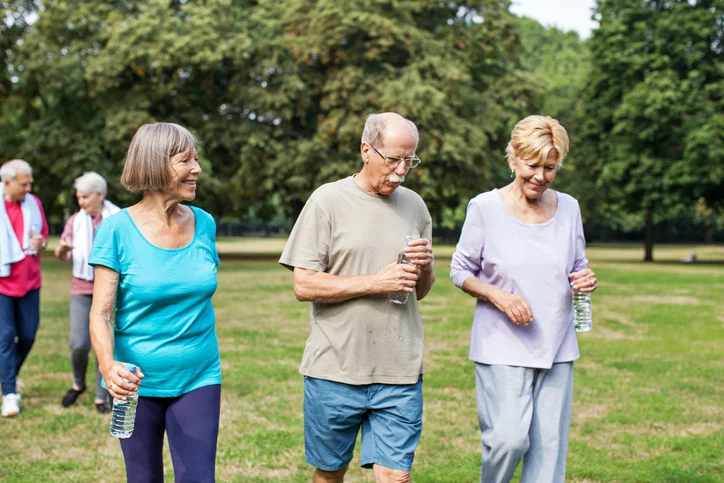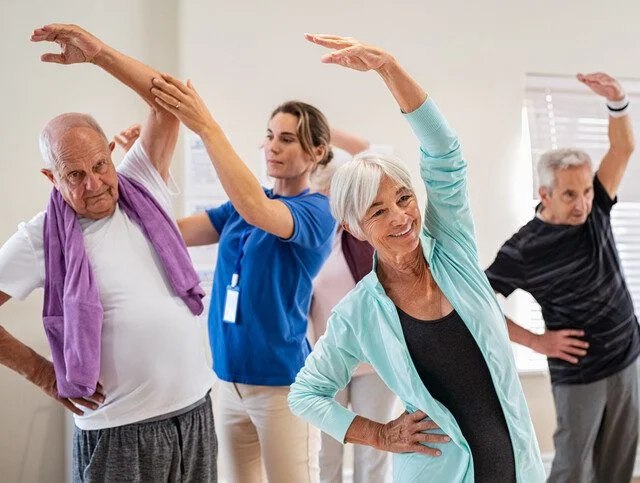Walking might just be the perfect exercise for older adults. This low-impact cardiovascular workout provides a relatively accessible way to stay active indoors or out. Walking is also gentle on joints (hips, knees and ankles) and more aligned with the needs of the aging body. That said, be sure to speak to a medical professional before making any changes to your exercise routine.
Continue reading to discover seven other benefits of walking for seniors.
1. Maintain a Healthy Body Weight
Walking in combination with a balanced diet can help you maintain a healthy body weight as you age. Your overall pace and distance traveled will determine how many calories you burn while walking. The CDC recommends brisk walking for at least 150 minutes a week for older adults. But if you’re just starting out, it’s better to walk for short stretches of time and work up to your goal.
2. Improve Cardiovascular Health
Walking is a cardiovascular activity that increases your heart rate. Regular cardio exercise can improve blood flow and even lower blood pressure. Walking is often recommended by doctors for people with cardiovascular disease because it is a relatively safe way to be more active. Running and jogging tend to be harder on the joints and more likely to cause injury.
3. Boost Mood and Reduce Stress
When you go for a walk your body releases hormones called endorphins. Endorphins relax your muscles and can even help reduce stress. If you find yourself in a bad mood or stressed out then going for a walk might be exactly what you need to turn the rest of your day around.
4. Improve Sleep Quality
Studies have shown that people who get more steps in their day often see improvements in sleep quality and duration. Walking outside in the sunlight can also help regulate your circadian rhythm. In addition, the more energy your body uses the easier it will be to go to sleep.
5. Prevent Cognitive Decline
Going for regular walks — and other forms of physical activity — can prevent cognitive decline and reduce the risk of dementia by as much as 50%. Older adults with mild cognitive impairment have even shown improvements in brain blood flow and memory after a year of regular exercise.
6. Reduce the Risk of Falls
Walking, biking and climbing stairs strengthen the muscles in your lower body and improve balance. Strength and endurance gained from walking can also reduce the risk of falls. Older adults who make a habit out of walking are often stronger and more stable on their feet.
7. Encourage Socialization
Walking alone comes with plenty of health benefits. But there are some additional benefits you gain exclusively from walking with others. Forming a walking group with one or more people can motivate you to stay active. It also can provide socialization time and boost your mood.
Get Moving at Newcastle Place
Staying active is easy at Newcastle Place, a senior living community in Mequon, Wisconsin (located near Milwaukee). Independent living residents have access to beautiful walking trails, a modern fitness center and an indoor heated swimming pool. We also employ an on-site fitness director who can create a custom wellness program designed for your age and ability level. Contact us or complete the form below to learn more about living well at Newcastle Place.


